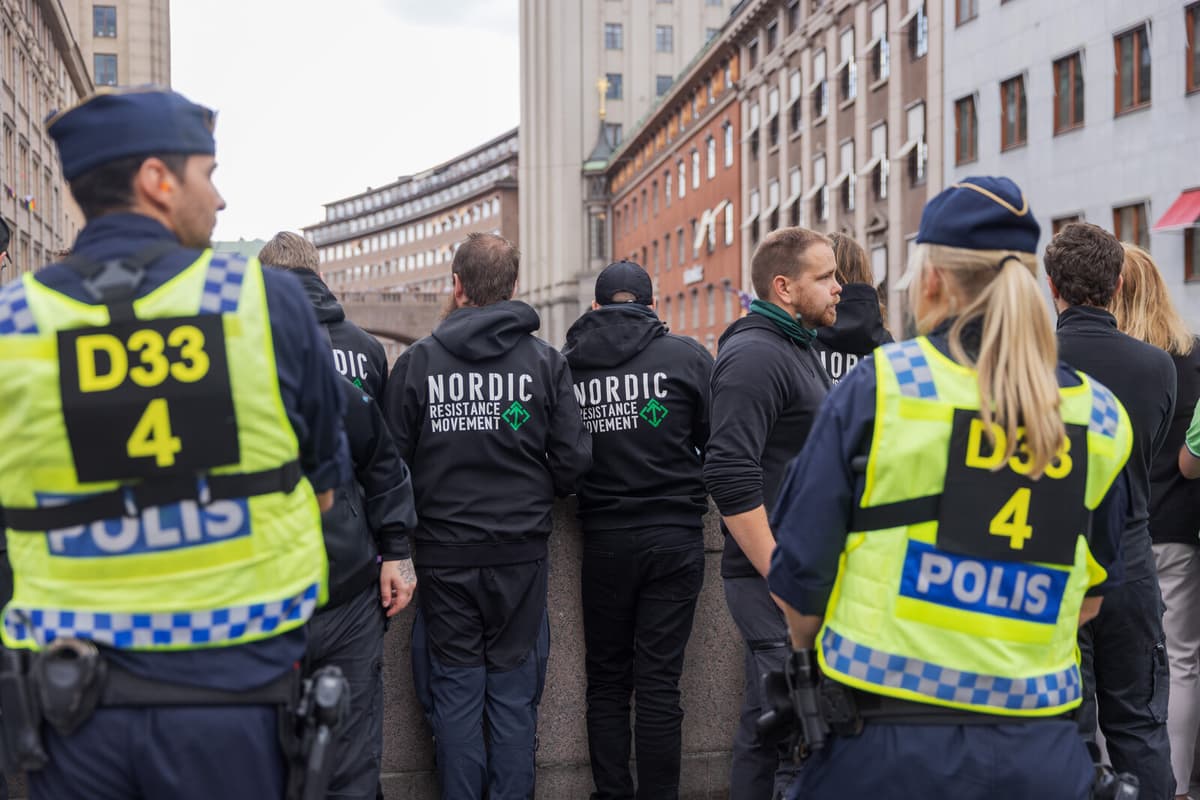On June 14 last year, the US Department of State announced that it would terror-list the Swedish NMR. At the same time, the leader Fredrik Vejdeland, the spokesperson Pär Öberg and a third man who had then left the organization were stamped as "global terrorists".
This was the first time the US had terror-listed a white power group in Europe. In connection with this, economic sanctions were also introduced.
There is no doubt that NMR has suffered economic damage from these sanctions, says Daniel Poohl, CEO of Expo, which in a report analyzed the impact of the sanctions a year later.
Harder to swisha
According to Expo, it has primarily meant major difficulties for the organization to collect money, as the opportunity to use Swish has been significantly impaired. It has also led to problems with IT services and websites, and several social media companies have deleted the organization's content.
NMR has, however, found ways to continue collecting money and spreading its messages to a lesser extent, including through loopholes in YouTube's and Meta's regulations.
The sanctions have also hit the three men directly. Two of them have lost their jobs, and Pär Öberg has himself been open about not being able to get a payment card and having lost his bank ID.
The report also shows that NMR has carried out significantly fewer activities in the past year.
We are cautious to say exactly what the reason is, but we can only note that one year after this terror listing, NMR is weakened, says Daniel Poohl.
Uncertain future
At the same time, the sanctions have accelerated the decentralization of NMR, as a way to secure the group's survival if the central leadership is knocked out in various ways.
Expo also highlights how NMR is now more clearly than before picking up minor right-wing extremists, and how the organization, despite the stamp, manages to maintain relationships with other Nazi groups in Europe.
Whether the terror listing will ultimately be the nail in the coffin for NMR is therefore difficult to say. The organization is "hard to kill" and has survived severe crises before.
"One of the factors that determines the effect of a US terror listing is how the listed actor's home country reacts to the signal from the US", writes Expo, which still does not see any decisive change in the attitude in Sweden towards NMR.
The Nordic Resistance Movement is a Nazi organization that was formed in 1997. It was originally called the Swedish Resistance Movement (SMR) and changed its name to the Nordic Resistance Movement (NMR) in 2016.
The group has had branches in Norway, Finland, and Denmark.
NMR has the stated goal of overthrowing the Nordic democracies. The ideology is based on racial biology and the racist myth of a Jewish world conspiracy. NMR also agitates against feminism and LGBTQ rights.
The organization has since 2018 run in several general elections without achieving any successes.
In 2019, a split occurred within NMR, partly due to dissatisfaction with the failed election campaign. The founder Klas Lund then left to start a new group.
NMR's symbol is the tyrrune, which was also used in Nazi Germany. Several of the members are convicted of various violent crimes - including a series of bombings in Gothenburg in 2016-2017.
Source: Expo






